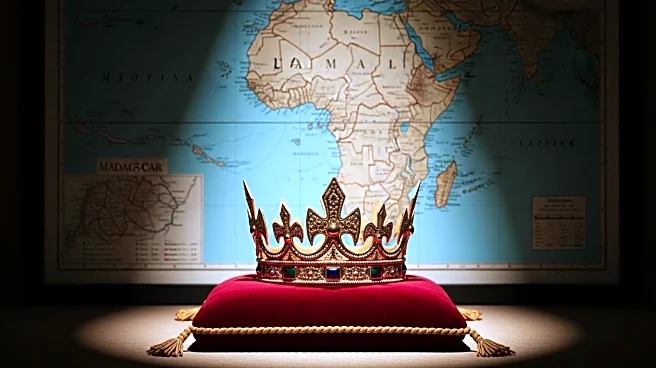What's Happening?
France has returned the skull of King Toera, a Malagasy monarch killed during the colonial era, to Madagascar. The handover took place at a ceremony in Paris, marking the first use of a new law designed to expedite the return of human remains from French collections. The skulls were originally brought to France in the late 19th century and stored at the Museum of Natural History. The return follows pressure from the king's descendants and the Malagasy government, despite inconclusive DNA tests. A traditional Sakalava spirit medium confirmed the skull's identity, underscoring the cultural significance of the gesture.
Why It's Important?
The return of King Toera's skull is a significant step in addressing the historical injustices of colonialism. It represents a broader movement towards reconciliation and the acknowledgment of past wrongs committed during colonial rule. This act may pave the way for similar restitutions, fostering improved relations between former colonial powers and affected nations. The gesture is a poignant reminder of the enduring impact of colonialism on cultural heritage and identity, highlighting the importance of restoring dignity to communities affected by historical violence and exploitation.
What's Next?
The return of King Toera's skull may encourage other countries to follow suit, potentially leading to more restitutions of cultural artifacts and human remains. This could prompt discussions on the ethical responsibilities of museums and institutions holding such items. The event may also inspire further legislative actions to facilitate the return of cultural heritage, promoting healing and reconciliation. Stakeholders, including governments and cultural organizations, may engage in dialogues to address the broader implications of colonial legacies and explore ways to support affected communities.








